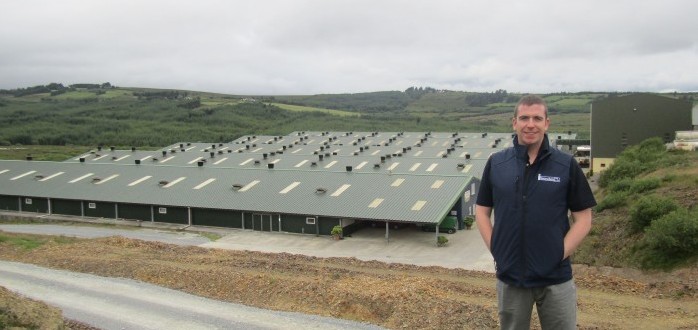In the latest issue of Pig World, writing before Irish Agriculture Minister Charlie McConalogue met more than 100 pig farmers on February 3 to discuss the crisis, Irish pig producer Shane McAuliffe explained the disastrous situation the Irish pig industry finds itself in.
In recent years I have found myself saying Irish pig farmers are going through the worst financial crisis in 10 years, then a few years later I say 15 years and more recently I have said 20 years.
However, the current financial situation that is occurring means our entire industry is on the verge of total collapse. The sky-rocketing feed costs have pushed pig farmers deeply into a downward spiral of debt.
Brexit and Covid have caused disruptions to supply chains and other inputs, such as heating and insurance, have also increased. Costs are now around the €1.85/kg mark, and that with a falling pig price (currently between €1.40-€1.44/kg), means that according to Teagasc, pig farmers are losing €37 a pig.
Many farmers cannot see any light at the end of this dark tunnel and, unfortunately, I expect to see many casualties during this downturn, for those that do survive will be paying off the debt for a number of years.
2019 and 2020 were indeed good years, and many people, including journalists, are referring to this when I have attempted to get this crisis highlighted in the media.
However, it is important to note that for many, 2019 and 2020 were paying off the debts for 2018. If we take the figures for a 600-sow unit for example, the losses of 2018 and 2021 (€384k) are greater than the profits of 2019 and 2020 (€369k).
Bord Bia has just launched an aggressive promotional campaign for pigmeat and I have noticed sponsored adverts appearing on my social media channels from celebrity chefs. Retailers need to play their part by increasing the shelf space and promotion of pigmeat too.
The Irish Farmers Association DNA Traceback programme is working hard taking samples across the catering and hospitality sectors for DNA testing to ensure suppliers are using Bord Bia-approved Irish pigmeat.
The Irish Government has a commitment to a Green Public Procurement policy, so we also need to ensure that only Irish pigmeat is used in the likes of the Irish Prison Service, the Irish Defence Forces and Irish hospitals.
But first and foremost, the Government need to explore what options we have available through emergency state funding, particularly through the use of existing Covid and Brexit support measures.
In 2021, we once again had another record-breaking year in terms of Irish pigmeat exports. The total volume of exports was up 3% to 248,000 tonnes, valued at €541 million. Exports to China peaked in March at 12,000 tonnes but with the market there in recovery, this dropped below 6,000 tonnes a month by the end of the year.
The international market (outside the UK and EU) now accounts for 71% of Irish pigmeat exports.
This is a vast turn around compared to only a few years ago when the UK was our biggest market, taking up to half of our exports, and has now plummeted to just 15% of total exports.
In my last piece back in September I touched on the latest research trials we were working at on farm. This was the ZincO project where we looked at the effects of therapeutic zinc oxide on the microbiome, resistome and immune system of pigs and strategies to face zinc oxide withdrawal, in conjunction with Teagasc, University College Dublin and the Universidad de Cordoba.
I was very happy of the performance of pigs without zinc and remain much more optimistic about the upcoming ban in June.
We also took part in BM-FARM: Biomarkers and Microbiome in Farms for Antimicrobial Resistance Management, as well as the Animal Health Ireland PigHealth Check-led salmonella case control study, which looked at serotyping and antimicrobial resistance profiling on Irish farms.
A trial with AHV I worked on administering their product FarrowPrep to lactacting sows was also a major success, giving higher born alive and higher weaning weights.
I have students starting on placement shortly who are on farm for three months and the plans are to focus on more trials looking at zinc oxide removal, welfare (including loose farrowing and intact tails), as well as collecting more data on AHV products.
I do hope my next article may be a bit more positive….
- Shane McAuliffe’s family produces 50,000 pigs per year for the Truly Irish brand in Kerry. He is secretary of the Irish Pig Health Society, secretary of the Irish branch of the European Pig Producers and sits on the Irish Farmers’ Association’s National Animal Health Committee. He is also head of swine for AHV Ireland
- You can follow Shane on Twitter: @ShaneMcAuliffe1




